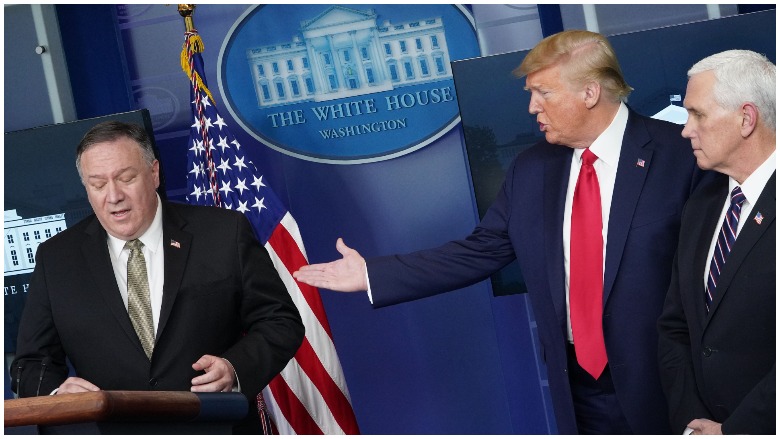
Getty Americans began to receive their coronavirus relief checks on April 9.
Do individuals receiving a stimulus check have to pay the money back next year? No.
Stimulus relief checks, approved through the CARES Act passed in March, are a one-time payment from the government in an effort to relieve the economic disruption caused by the COVID-19 pandemic. They are considered an advance “credit” on 2020 taxes. Tax refunds due in 2020 and 2021 will not be affected by the stimulus check.
The stimulus money is nontaxable and will not be included in Americans’ 2020 income. That means it will not boost an individual’s income or affect their benefits.
Bill Smith, managing director for CBIZ MHM’s national tax office, told Forbes, “Your taxes aren’t going up next year because of this package — there are no big income tax changes in the CARES Act.”
What About Individuals Who Made More Money in 2020 and No Longer Qualify for What They Received?
People who make significantly more money in 2020 than in 2019 will not have to pay back any of the money they receive from the stimulus.
For example, if an individual earned $50,000 in 2019, they qualify for the full $1,200 stimulus check. If that same individual earns $100,000 in 2020, they are not required to pay back the $1,200.
The IRS will use 2018 and 2019 tax returns to determine eligibility for stimulus checks based on income. Adults who filed taxes with the IRS and earn up to $75,000 annually will receive $1,200 each, plus an additional $500 for dependent children under the age of 17. The stimulus amount decreases for those who make more than $75,000, phasing out completely for individuals who earn $99,000 or more annually.
Millions of Americans Do Not Qualify for a Stimulus Check
As Americans anxiously wait to receive their checks, up to 10 million people are at risk of not getting anything in the mail.
For example, those who make less than $12,200 are not required to file an income tax return. Because of that, it could be impossible for the IRS to verify their income or know where to send a coronavirus stimulus check.
People claimed as a dependent on someone’s taxes also do not qualify. This means that young adults who are over 17 but still claimed as dependents on their parent’s taxes (this includes many college students) will not receive checks.
Disabled adults claimed as dependents by parents or relatives will also miss out on relief money.
Others who are at risk of falling through the cracks include immigrants without Social Security numbers, those who lost their jobs in 2020 but made more than $99,000 in 2019, those who filed jointly with a spouse in 2019 and are no longer married, and those overdue on child support payments.
Fortunately, TurboTax has launched a free Stimulus Registration product to help Americans who are not required to file a tax return register with the IRS.
Click here to learn more about TurboTax’s free program.
For those whose direct deposit information is not registered with the IRS, the Treasury plans to create a web-based portal for individuals to provide their banking information so payments can be received immediately.
The portal is not available online as of April 9. It is expected to go live in late April or early May, according to CBS News. The IRS coronavirus page offers updated information about the portal and its availability.
READ NEXT: COVID-19 Stimulus Checks: How Millions of Low-Income People Are Being Left Out